Goat farmers commonly keep dairy and meat goats for milk production and meat production.
However, many goat breeds can take care of overgrown brush.
Certain goats are skilled and tenacious at clearing heavy brush; many breeds were specifically bred as brush cutters.
Let’s look at some of the best brush goats for clearing brush and taking care of unwanted weeds on your farm.
Table of Contents
ToggleBoer Goats
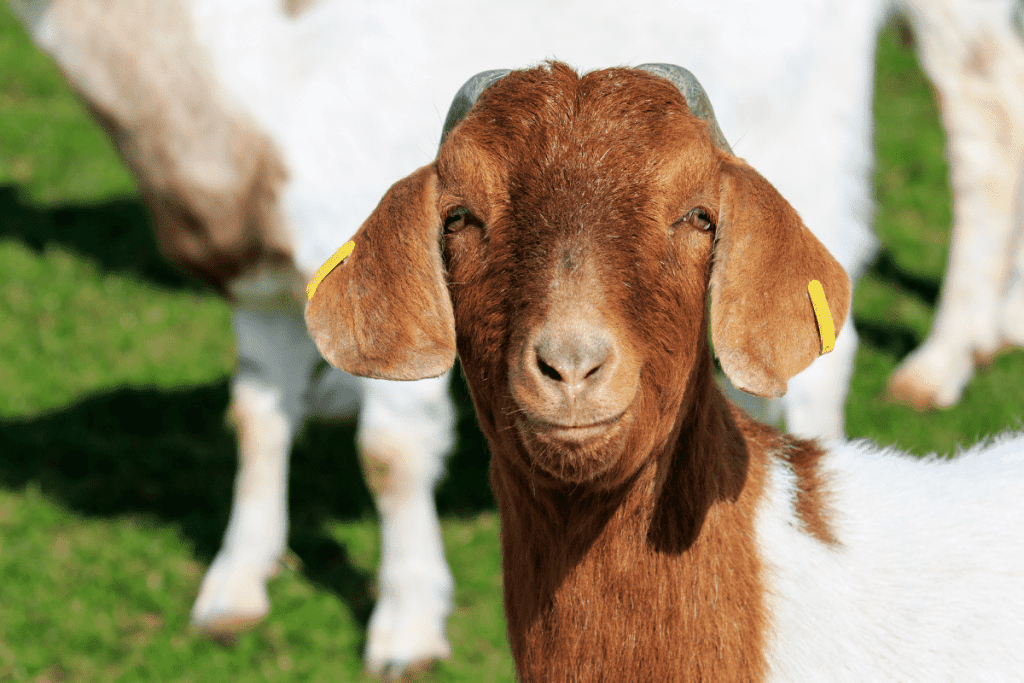
Boer goats are a very popular option for breeds of goats.
The benefit of brush goats from this larger breed is their voracious appetite.
The brush-clearing goats are great options.
They are typically kept as meat goats but offer the added benefit of acting as brush control goats.
Brush goat keepers love the hardiness of this meat breed.
They clear brush much faster than other brush breeds and offer the added benefit of meat production.
Nigerian Dwarf Goat
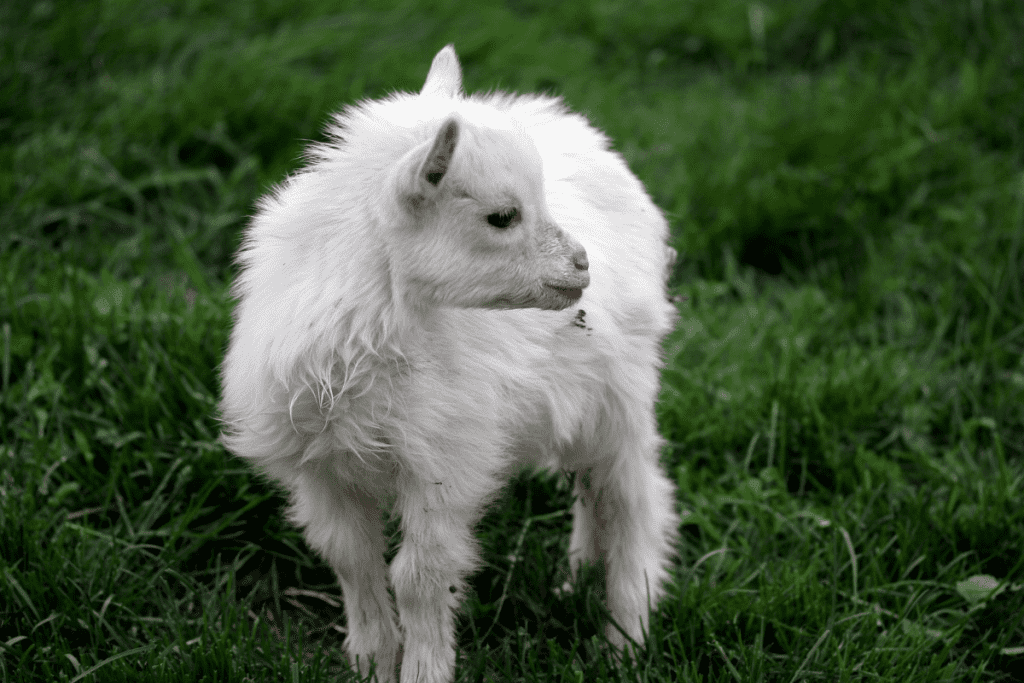
Nigerian dwarves are a smaller type of goat offering the great benefits of brush goats.
They are natural browsers and have a knack for finding weeds and plants for goats to eat.
They are also great dairy goats since they offer one of the highest butterfat content in goat milk.
Having a brush goat herd of Nigerian goats is great as they don’t need as much space or maintenance as other brush-type goats.
Their small size makes them an excellent choice for a goat brush control business as they are easier to transport to potential clients.
Pygmy Goats
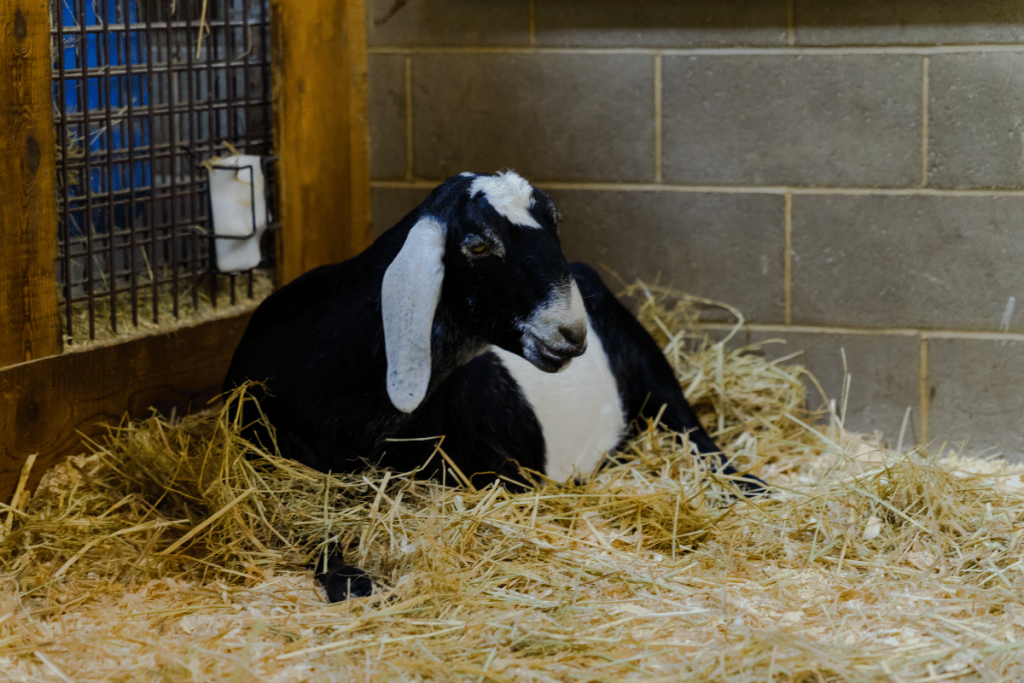
Pygmy goats are another great option for brush goat herders.
They are small and have adorable faces and personalities, which will win over any brush goat owner.
This makes them a great option for building lovable and cute brush goat operations.
There is a growing popularity for establishing a brush goat rental business, and we’re sure the cuteness factor of pygmy goats will help attract clients.
Pygmy goats do an excellent job at clearing low-lying brush and low-growing vegetation.
They also make excellent pet goats.
They make excellent goat candidates if you are a goat owner looking to incorporate some goat brush clearing on your property.
Alpine Goats
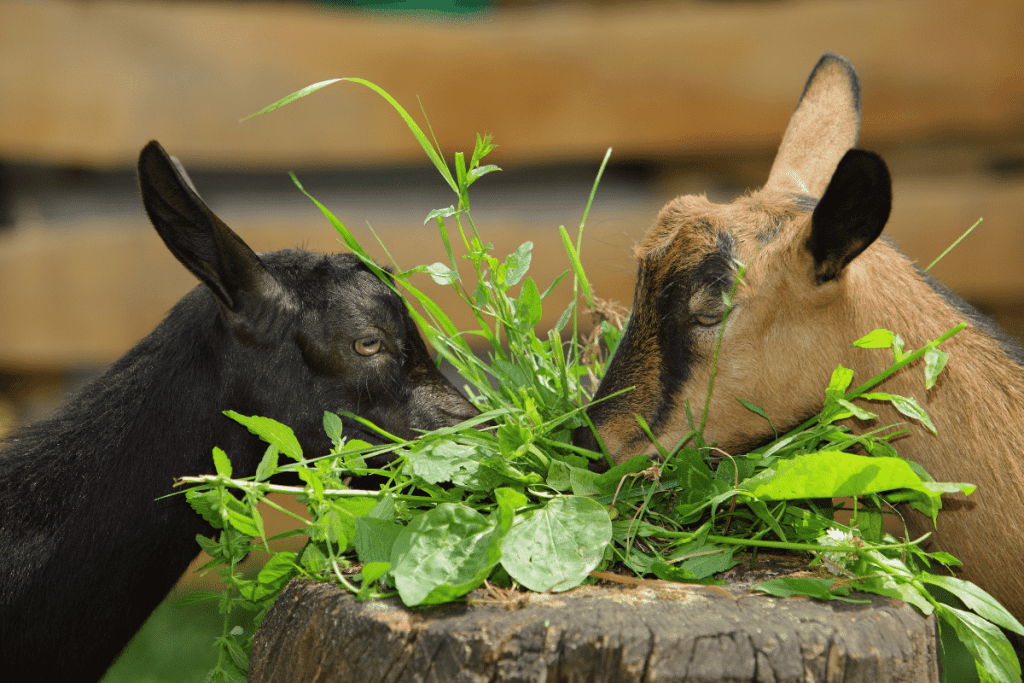
Alpine goats are one of the most common types of brush-clearing goats.
They are voracious and determined browsers.
Many will stand on hind legs to reach tall brush, and some will even climb trees to get tasty snacks.
They are natural leaders and will take charge of a herd of brush goats, another benefit.
The Alpine is a dairy goat breed capable of producing at least one gallon of milk per goat daily.
Related: How much milk does a goat make daily?
Some particularly productive Alpines will reach up to three gallons a day.
This breed has larger goats, making them skilled and productive at clearing unwanted brush.
Individual goats of this breed will clear spaces fast and efficiently.
They will climb branches of trees damaging trees in the process.
Keep them away from anywhere you don’t want damage to trees.
Spanish Goats
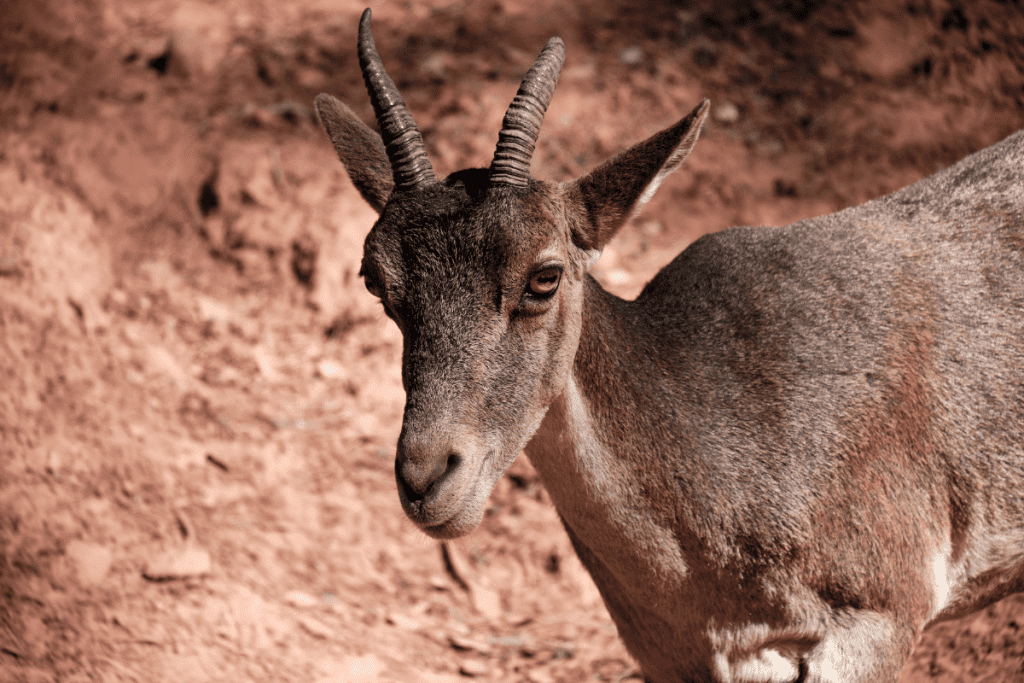
Spanish goats are arguably the champion goats for clearing brush.
Goat farmers originally bred Spanish goats for meat and brush clearing.
Brush goat, wood goat, hill goat, scrub goat, and briar goat are all nicknames for the Spanish goat.
The term “Spanish goat” refers to the Spanish types of goats rather than a specific breed.
These types of goats are originally from Spain and Mexico.
Spanish explorers likely brought the landrace goats to America.
They were kept as a meat goat breed and brush clearing breed.
Over time, the Boer breed replaced Spanish goats as the predominant meat breed.
However, as the demand for goat meat has increased over recent years, many are looking to the Spanish goat for its hardiness and reputation as a low-input goat.
Kiko Goats
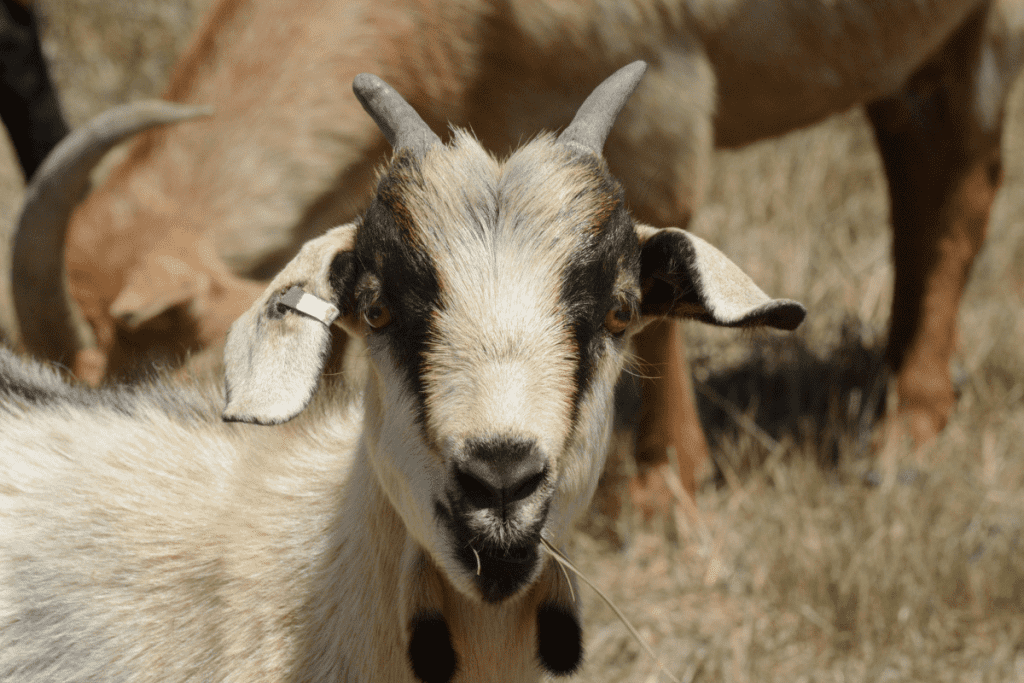
Kiko goats make an ideal brush goat.
This goat is celebrated for its hardiness and resistance to parasites and hoof problems.
Hardy goats are fantastic for having a natural resistance to common goat diseases.
A goat with diseases can infect an entire herd of goats, so having one with natural resistance to common parasites and other issues is very beneficial.
Hardiness helps prevent livestock losses as well.
The Kiko is a large breed capable of clearing many brush plants and any less desirable plants on your property.
Angora Goats
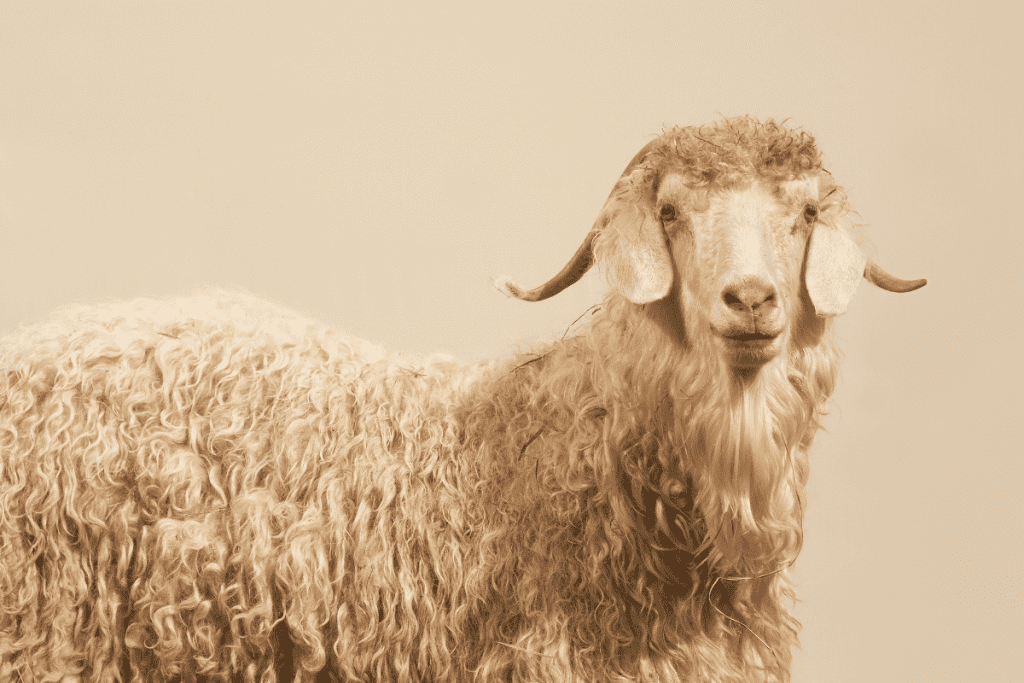
Angora goats are larger goats capable of clearing large areas of brush.
They are predominantly kept as fiber goats for their luxurious coats.
These coats are long and beautiful, but they tend to get tangled in brush, much like horned goats.
One major benefit of Angora goats for goat farmers is how they find more desirable plants to eat than other breeds.
Some goats won’t touch certain plants on overgrown land, but this is not an issue for Angoras regarding land clearing.
This includes nettles, thistles, docks, and other weeds most other goats avoid.
Further Reading: A Complete List Of Goats With Long Hair
Cross-Breeds
Many goats will do a wonderful job at clearing brush and invasive vegetation.
For this reason, we also recommend considering cross-breeds for your herd.
There are many crosses of goat breeds on this list with other types of goats.
These goats will do an amazing job clearing unwanted brush on your property.
For the most part, goats do an excellent job differentiating toxic plants from safe ones, but it is still a good idea to familiarize yourself with toxic plants and goat poisoning symptoms.
Not only will this help reduce the likelihood of your goats experiencing toxicity or poisoning from eating bad plants, but it will also give you the knowledge you need to act fast and keep your goats safe.
Here are some other benefits of keeping cross-breed goats as part of your brush-clearing herd:
- They have more resistance to parasites and diseases.
- They are generally more hardy and less maintenance than pure-bred goats.
- Cross-breeds cost little to nothing to breed.
- Crossbreeding allows you to diversify the sizes of the goats in your herd.
- Smaller cross-breeds have access to low-lying vegetation, while larger breeds can clear taller branches and plants.
How useful was this post?
Click on a star to rate it!
We are sorry that this post was not useful for you!
Let us improve this post!
Tell us how we can improve this post?
